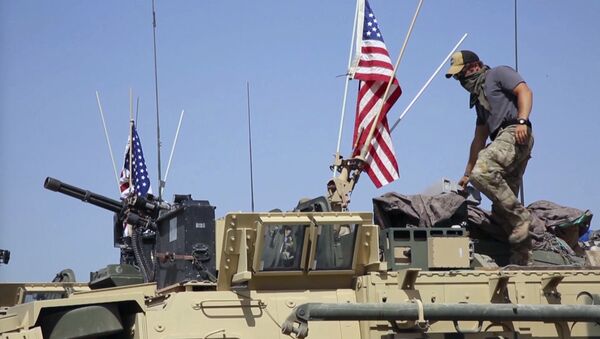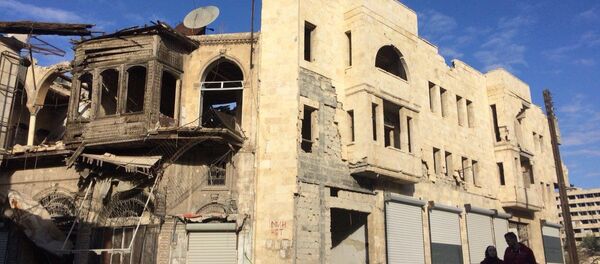'Stabilization in Syria is not for tomorrow. I don't see any bright future light at the end of the tunnel. It may continue to become more stable but its full stabilization is not for tomorrow. Because the major actors [such as] the United States, European countries, Turkey, Russia and Iran have divergent views, divergent approaches. Their policies [are] not the same,' Yakis, who served as Turkish foreign minister from November 2002 till March 2003, said.
The statement was made at a panel discussion in Moscow, centring around Turkey's relations with Russia and the European Union in light of recent developments in the Middle East.
He stressed that these conflicting policies were actually a factor that is holding the stabilization process back.
Commenting on Turkey’s policy in Syria, Yakis noted that it was only "thanks to cooperation with Russia" that Ankara had adjusted its approaches to the reality on the ground.
'Was it able to adjust it entirely? Unfortunately not, because there are still difficulties', he stressed.
Yakis also suggested that Ankara should cooperate more closely with Moscow to "counterbalance" Tehran’s influence in Syria, instead of seeking full withdrawal of Iranian forces from the region.
'Perhaps for Turkey [it would be reasonable] to cooperate more with Russia in order to counterbalance Iranian negative influence in Syria. That would be a better policy … I think that Iran is too deeply entrenched in the crisis in Syria. Even if you withdraw some [Iranian] soldiers or weapons, their presence has other dimension[s] so it is not easy to uproot Iranian influence from Syria', he pointed out.
According to Yakis, Turkey’s attempts to eliminate alleged Iranian influence in Syria would be also a sign of major ingratitude to Iran, as all the three guarantor states are cooperating within the framework of the Astana and Sochi peace processes on the Syrian conflict settlement.
US Setting Up Observation Posts
The day before, Combined Joint Task Force Operation Inherent Resolve reportedly announced that they were setting up a number of observation posts in Northeast Syria in an effort to prevent the Daesh forces in the central Euphrates River valley from making their way into Turkey.
READ MORE: US Boosts Presence in NE Syria As Turkey Says No Daesh in Country
The move, however, has been previously criticised by Ankara. In particular, Turkish Defence Minister Hulusi Akar during his recent visit to Canada told US Chief of Staff Joseph Dunford and other US officials that the decision would have a very negative impact on perceptions of the United States in Turkey.
READ MORE: Ankara Transfers Militants to Turkey From Syria's Idlib — Reports





